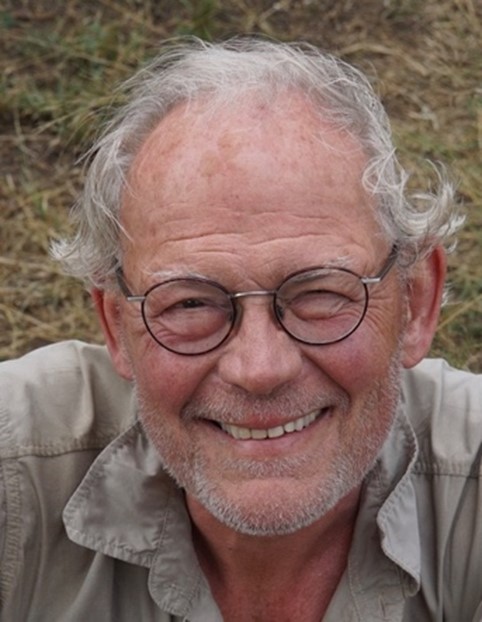Wilderness experiences transform leaders‘ mindsets
A stay in pristine nature under primitive conditions does something to you. You are able to relax, contemplate and as a result transform as a leader. According to Dr. Boy van Droffelaar, facilitator at the FNL, such a trip promotes the development of purposeful, authentic leadership.
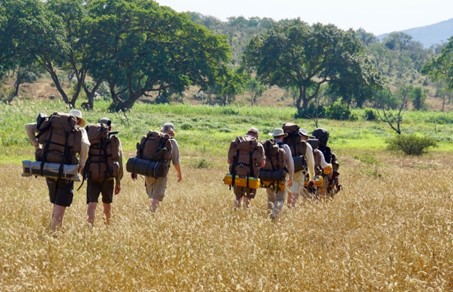
Everything starts with awareness
Boy about the motivation for his research:
“I looked out over the Imfelozi River. It was the third day of my first wilderness trail, organized by the Foundation for Natural Leadership (FNL), the Netherlands. The gift I received then can be summed up in one word: Awareness. Awareness that there is more than just status, ego and possession. Awareness to enter new landscapes that I vaguely knew were there, but did I really step inside?
By entering those landscapes (read: areas of knowledge) I discovered beautiful places, also within myself, which have led to deep insights about the world and about myself. It was a gift, perhaps a peak experience, that came to me the moment I spent hours “solo” looking out over the Imfelozi River in KwazuNatal South Africa. It was the moment when an Elephant appeared on the other side of the river and two Egrets skimmed low over the water and greeted me with a loud cry: you are allowed to be here, here in nature, you are one of us, here you belong. This gave me an intense feeling of connection, emotion, energy and inspiration. From that moment on I was no longer an outsider who looked at nature but felt one with Nature. My self-awareness and worldview had changed forever. Since then, it has guided me in my personal leadership again and again.
This wilderness experience gave me the inspiration to scientifically investigate why all those leaders (m/f), who have been on a ‘wilderness trail’, experienced it as a life-changing experience. They say they still use it every day in their role as a leader, but also in their personal lives. The question that arises is why assert all those, already 1600 CEO’s and senior leaders (m / f), who have been on a ‘wilderness trail’, that they have experienced it as a life-changing experience that they still recall daily in their role as a leader, but also in their personal lives. In short, what impact do wilderness experiences have on the development of natural, or authentic, leadership? I started this beautiful journey in science in 2012 at Wageningen University & Research.”
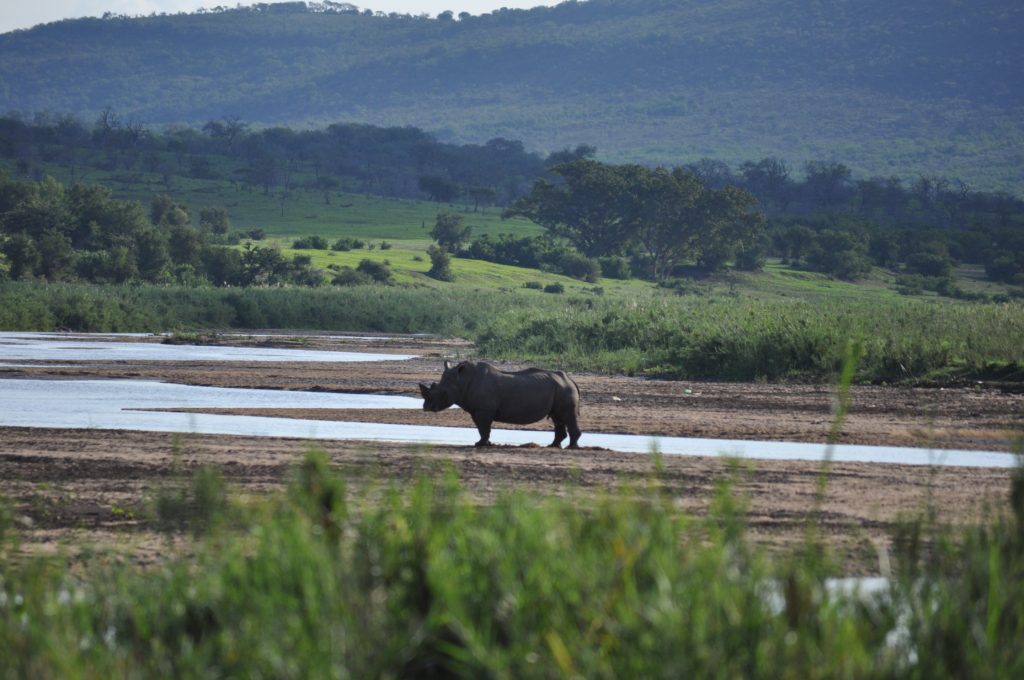
New leadership requires a shift in mind set
Due to today’s rapidly changing society, we are faced with increasingly complex issues. This calls for “new leaders.
These are leaders who are optimistic, inspiring, authentic, show integrity, care for others and, above all, possess a high degree of self-reflection. Therefore, a fundamental shift in mindset is necessary. Yet, leadership development is largely based on cognition-based learning to improve competences – skills and abilities (skillset) – by classroom exercises in traditional venues. Now, however, the basic attitude, the inner source (mindset), of the leader needs to be addressed and transformed.
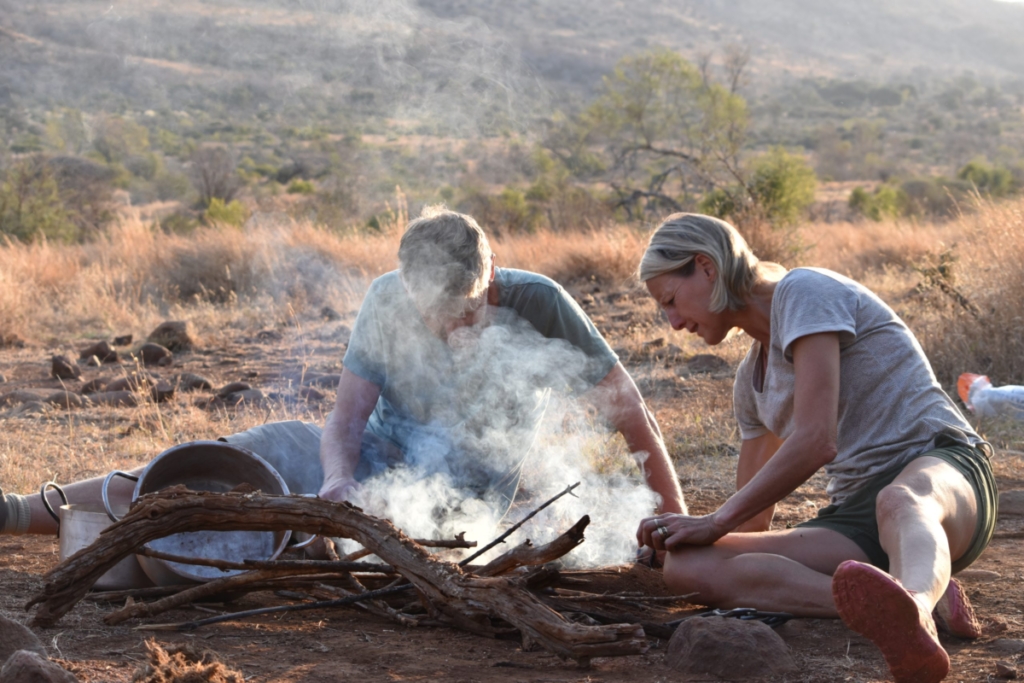
Authentic (Natural) leadership; what is that precisely?
Authentic leaders are guided by solid moral beliefs and act in accordance with their deep-rooted values, even under pressure. They are well-aware of their self-image, their strengths and weaknesses, and strive to understand how their leadership affects colleagues and followers. In theory, the four components of authentic leadership are:
- Self-awareness. Authentic leaders know their strengths and weaknesses. Because of their interactions with others, they are aware of the impact they have on others in general, and, in particular, those who lead them.
- Internalized moral perspective. Authentic leaders self-regulate based on their moral norms and values. Authentic leaders are not tempted by opportunities that jeopardize their core principles and obligations. They are guided by their moral compass.
- Balanced processing of information. Authentic leaders analyze all relevant information before making a decision. They are, open to feedback and are able to listen to what is really needed.
- Relational transparency. Authentic leaders express what they are thinking and feeling honestly. Authentic leaders are not afraid of being vulnerable. It allows employees to understand the reasoning and emotion behind a leader’s decision, which reduces fear of the unknown and stimulates feelings of trust.
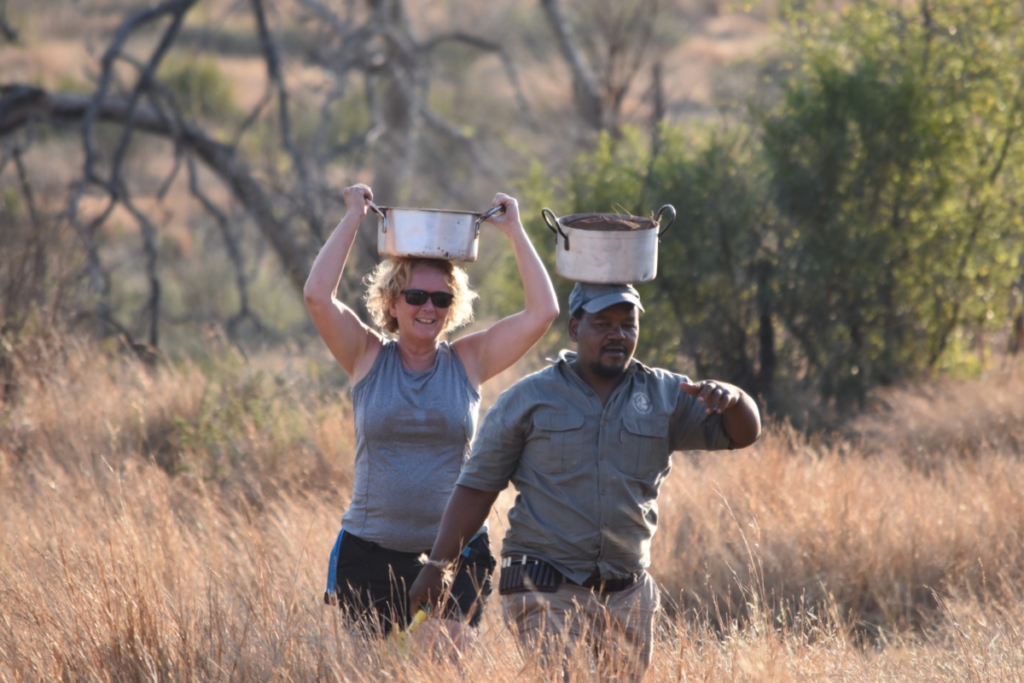
Trigger events deepen awareness
Interestingly, several scientists have suggested that “critical life events” – events that shape people’s lives – are likely an important antecedent to authentic leadership. These so-called “trigger events” can bring about dramatic as well as subtle changes in peoples’ perspectives and circumstances and may give a significant boost to personal growth. The subjective experience of trigger events can enable leaders to reflect on their self-image, beliefs, values, emotions and world view. A stay in the wilderness could also be labeled as a trigger event.
And then into nature!
Maslow (1964) already argued that staying in the wilderness can evoke peak experiences. Peak experiences are profound, transformative experiences, accompanied by feelings of timelessness and wonder. They are experienced as positive, emotionally and cognitively intense, and have the potential to drive lasting change in people. In addition, psycho-ecological research indicates that being in nature can have profound psychological effects, including stress reduction and attention restoration. Furthermore, research suggests that nature experiences can lead to positive psychological effects, such as emotional well-being, personal growth, and increased self-awareness. Thus, peak experiences can act as trigger events with moments such as feeling one with nature, self-reflection, and sharing life stories. This can, therefore, lead to radical personal changes. For example, peak experiences such as being one with nature, a sudden insight through self-reflection and sharing life stories, can be experienced as such a trigger event. This can lead to profound personal changes.
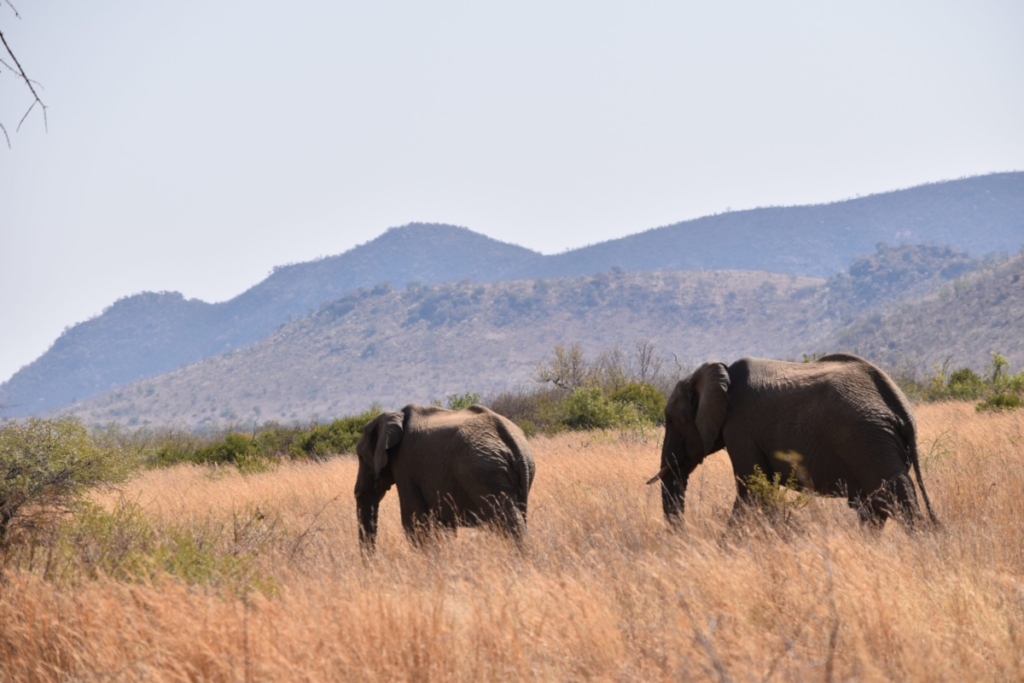
Impact of the trail on authentic leadership development
The PhD research on the effects of the wilderness trail on leadership transformation was based on three empirical studies:
- The first study, based on nearly 100 trail reports, found that peak experiences led to essential insights during the trail. Subsequently, the intentions emerging from the insights appeared to resonate almost one-on-one with the four components of authentic leadership. For example, one participant wrote:
“I felt deeply that sincere and complete attention to the other is essential, with all my senses, as is also necessary in the wilderness”.
Another participant wrote:
“… I will show my emotions more. Emotion gives strength, I have discovered. Although it makes me vulnerable, but that vulnerability makes me what I am…”
- The second, quantitative, study (n = 66) tested longitudinal intra-personal change towards authentic leadership: before, 3 months after, and one year after completion of the program. All components of authentic leadership were found to be significantly increased with significant effect size (d= .7).
- The third study included a qualitative analysis of 36 interviews with former trailists who had been on the trail an average of six years before. This showed that all participants have emotional, episodic memories of their experiences in the wilderness. Memories that resurface during moments that matter. According to the participants, this generates peace of mind and gives direction to their leadership. And this can happen quite often, they said, sometimes even daily. For example, one participant said:
“Each time, the image of the silence and the feeling of tranquility in the mountains gives me inner peace, from which I can now operate with confidence.”
In addition, the leaders felt that their leadership behavior has changed permanently since then. In their organizations, this has led to an increase in mutual trust, more attention to personal development, and, with that, to an increase in creative and innovative capacity, which, in turn, led to better results. As one of the interviewees said:
“I talk a lot more about my feelings now. And that has a huge impact. I have come to realize how important space is for people. And now I have a much wider antenna; I am much more aware of an enormous spectrum of signals”.
Another participant added:
“Yes, from the moment I got back from the trail, people said I radiated a certain relaxed calmness, a kind of peace of mind that was deeply rooted in me, and that I always take a moment to think, reflect.”
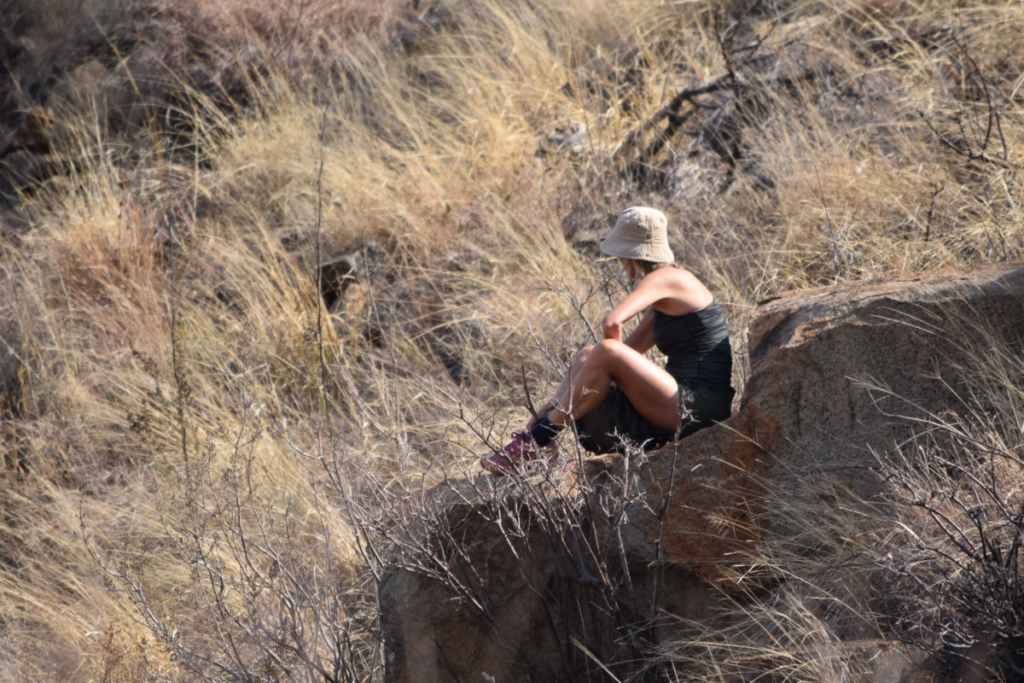
What can we conclude?
The studies of the PhD research by Boy show that experiences in the wilderness lead to a mind shift in leaders; authentic leaders with increased self-awareness, who are able to look at themselves and their environment from an open mind, open heart and open will.
The impact is caused by a combination of exceptional circumstances, such as being in solitude and oneness with nature, which creates plenty of room for reflection. This in contrast to conventional leadership training, in which the experience is that these are often one-off events, without a follow-up program, while the lasting effect fade over time (honeymoon effect). Thus, a question worth considering in future research concerns how followers evaluate their leaders before and after the leaders involved have been on a wilderness trail. Research suggests that leader’s positive capabilities can be highly contagious and create positive spirals upward in organizational learning and transformation
Would you like to read more about this research? You can find the PhD research here.
Boy van Droffelaar
After a successful career as a corporate executive at large enterprise such as AkzoNobel, Randstad and SaraLee/DE, Boy van Droffelaar (1949) started guiding wilderness trails for the FNL. In 2020 he obtained his PhD at Wageningen University & Research with the thesis:
“The Impact of a Wilderness-based Training Program on Leadership Transformation”.
Since 2021, Boy has been making the podcast “Leaders into the Wild” together with his son Niek, in which the trail experiences and the effect on leadership are central. link to podcast.
